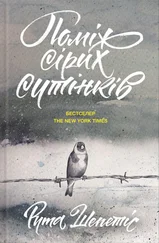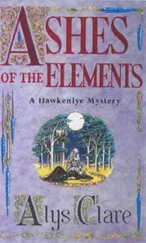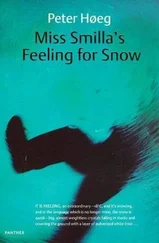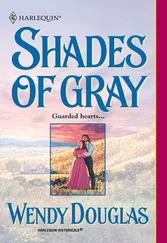“And Dickens nonetheless. How dare you! You are becoming the animals they treat us as!”
“What’s going on?” I asked.
“Your brother and Andrius are smoking!” she bellowed.
“My mother knows,” I said.
“Books!” she said, thrusting a hard cover in my face.
“We ran out of cigarettes,” Jonas said softly, “but Andrius had tobacco.”
“Miss Grybas,” said Mother, “I’ll handle it.”
“The Soviets have arrested us because we are knowledgeable, learned people. To smoke pages of a book is just… What were you thinking?” Miss Grybas asked. “Where did you get this book?”
Dickens. I had The Pickwick Papers in my suitcase. Grandma had given it to me the Christmas before she died. “Jonas! You took my book. How could you?”
“Lina,” began Mother.
“I took your book,” said Andrius. “Blame me.”
“I certainly do blame you,” said Miss Grybas. “Corrupting this young boy. You should be ashamed.”
Mrs. Arvydas slept on the other side of the car, completely unaware of what had transpired.
“You’re an idiot!” I screamed at Andrius.
“I’ll get you a new book,” he said.
“No, you won’t. It was a gift,” I said. “Jonas, Grandma gave me that book.”
“I’m sorry,” said Jonas, looking down at his chest.
“You should be!” I yelled.
“Lina, it was my idea,” said Andrius. “It’s not his fault.”
I waved him away. Why did boys have to be such idiots?
WEEKS. I LOST TRACK of how long we had been traveling. I stopped watching for bodies to be hurled from the cars. Every time the train pulled away, we left a litter of corpses in our wake. What would people think if they saw them? Would someone bury them, or would they believe they were really thieves and prostitutes? I felt as if I were riding a pendulum. Just as I would swing into the abyss of hopelessness, the pendulum would swing back with some small goodness.
One day, for example, just past Omsk, we stopped in the countryside. There was a small kiosk. Mother bribed a guard to let her out of the car. She came running back, her entire skirt bowed full and heavy. She knelt down in the car and released her skirt. Candy, toffees, lollipops, black licorice, mountains of gumdrops, and other treats spilled out onto the floor, unfolding like a rainbow in front of us. Bright colors everywhere—pink, yellow, green, red, and enough for everyone. The children squealed with delight and jumped up and down. I bit into a gumdrop. A burst of citrus exploded in my mouth. I laughed and Jonas laughed with me.
There were cigarettes, matches, and dark chocolate wafers for the adults.
“They didn’t have bread or anything substantial,” explained Mother as she divided the treasure amongst everyone. “There were no newspapers.”
Children grabbed Mother’s legs in glee, thanking her.
“Foolish woman. Why do you waste your money on us?” said the bald man.
“Because you are hungry and tired,” Mother said, handing the man a cigarette. “And I know you would do the same for my children if they ever needed it.”
“Bah,” he scoffed and looked away.
Two days later, while on the bucket run, Andrius found an oval stone full of quartz and other minerals. Everyone passed it around, oohing and ahhing. Mrs. Arvydas joked and put it up to her finger as if it were a shimmering gemstone.
“Didn’t you know?” she said. “I’m a train car princess.”
We laughed. People smiled. I almost didn’t recognize them. I looked over at Andrius. His face beamed with a grin that changed his appearance entirely. He was handsome when he smiled.
AFTER SIX WEEKS, and the third day without food, the train stopped. They did not open the door. The bald man, who had been charting our progress from the city markers called from the window slot, guessed we were somewhere in the Altai region, just north of China. I tried to peek through cracks in the wagon boards, but it was dark outside. We banged on the doors. No one came. I thought of the loaf of bread I had left on my windowsill, still warm and swollen from the oven. If only I could have a piece. Just one small pinch.
My stomach burned with hunger and my head throbbed. I missed drawing on real paper and longed for light to sketch properly. I was sick of being so close to people. I felt their sour breath all over me, elbows and knees constantly in my back. Sometimes I had the urge to start pushing people away from me, but it was no use. We were like matchsticks in a small box.
Late morning came and we heard clanking. The guards opened the door and said we would be getting out. Finally. My entire body trembled at the shock of daylight. I marked “Altai” on my handkerchief.
“Lina, Jonas, come here and comb your hair,” Mother instructed. She smoothed out our clothes, a wasted effort, and helped me twist my hair into a crown. Twisting it made it itch even more.
“Remember, we must all stay together. Do not walk away or stray. Do you understand?” We nodded. Mother still clutched her coat tightly under her arm.
“Where are we?” asked Jonas. “Will they give us a bucket of water?”
“I don’t know yet,” said Mother, fixing her own hair. She pulled out a tube of lipstick and, with a weak hand, applied the melted color to her lips. Jonas smiled. She winked back at him.
The NKVD had bayoneted rifles at the ready. The sun reflected off the dagger-shaped blades. They could puncture us within a fraction of a second. Miss Grybas and Mrs. Rimas helped the small children out first, and we followed. Andrius and the gray-haired gentleman carried the bald man from the car.
We weren’t at a train station. We were in a wide, deep valley, surrounded by forested hills. I saw mountains in the distance. The sky had never looked so blue, so beautiful. I had to shade my eyes from the intense sun. I breathed deeply and felt the crisp, clean air draft my polluted lungs. The NKVD directed the deportees from each train car to sit in groups on the grass, twenty feet from the tracks. We were given two buckets of slop and water. The children lunged for it.
It was the first time I had seen the other passengers. There were thousands of people. Did we look as pitiful as they did? Masses of Lithuanians with tattered suitcases and bulging bags poured out into the valley, dirty and gray with soiled clothing, as if they had lived in a gutter for years. Everyone moved in slow motion, some too weak to carry their belongings.
I didn’t have control of my legs, nor did most others. Many buckled under their own weight onto the ground.
“We must stretch before sitting down, sweetheart,” said Mother. “Our muscles have surely atrophied these past weeks.”
Jonas stretched. He looked like a filthy street beggar. His golden hair stuck to his head in matted clumps, and his lips were dry and cracked. He looked at me, his eyes widened. I could only imagine the state I was in. We sat down and the grass felt heavenly, like a featherbed compared with the wagon floor. The chugging motion of the train, however, was still trapped in my body.
I looked at the people from our train car. They looked at me. Revealed by daylight, we saw the strangers we had shared a black closet with for six weeks. Ona was only a few years older than me. It had been dark when they put her on the truck in front of the hospital. Mrs. Arvydas was more attractive than her shadow. She had a very shapely figure, smooth brown hair, and full lips. Mrs. Rimas was a short woman with thick ankles, close to Mother’s age.
People tried to communicate with the other groups, looking for family members and loved ones. The man who wound his watch approached me.
Читать дальше
![Рута Шепетис Ashes in the Snow [aka Between Shades of Gray] обложка книги](/books/414915/ruta-shepetis-ashes-in-the-snow-aka-between-shades-cover.webp)











